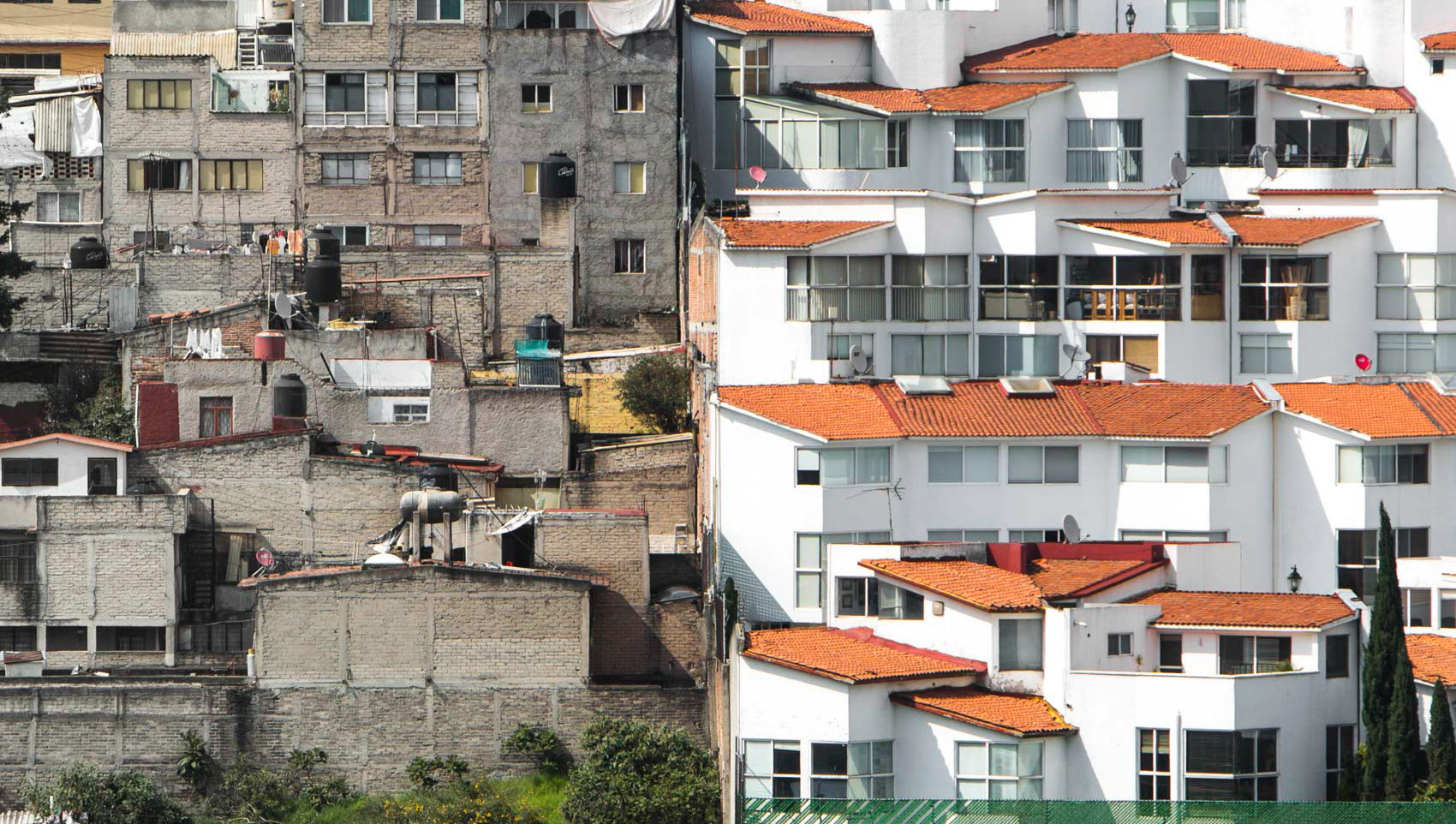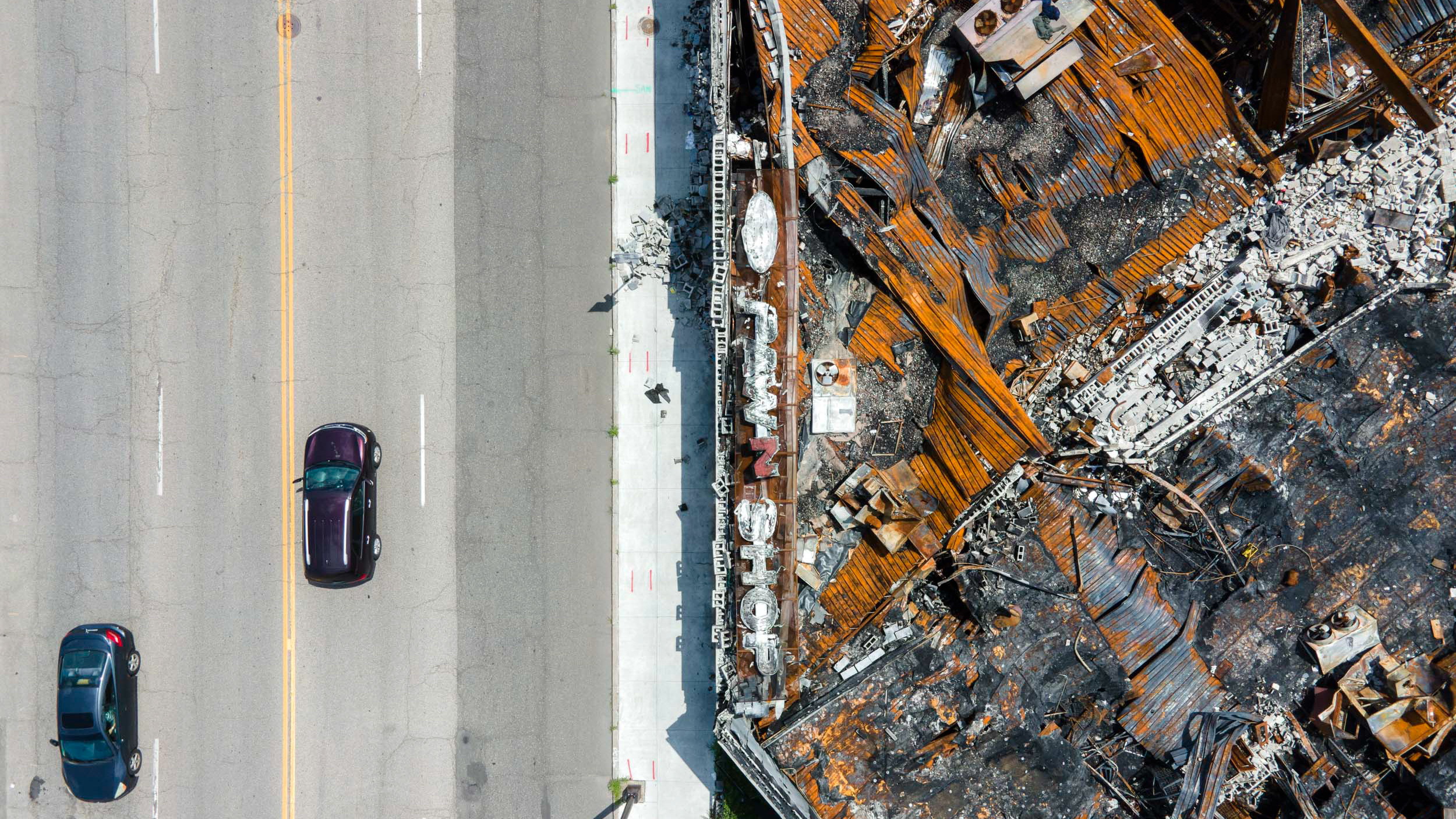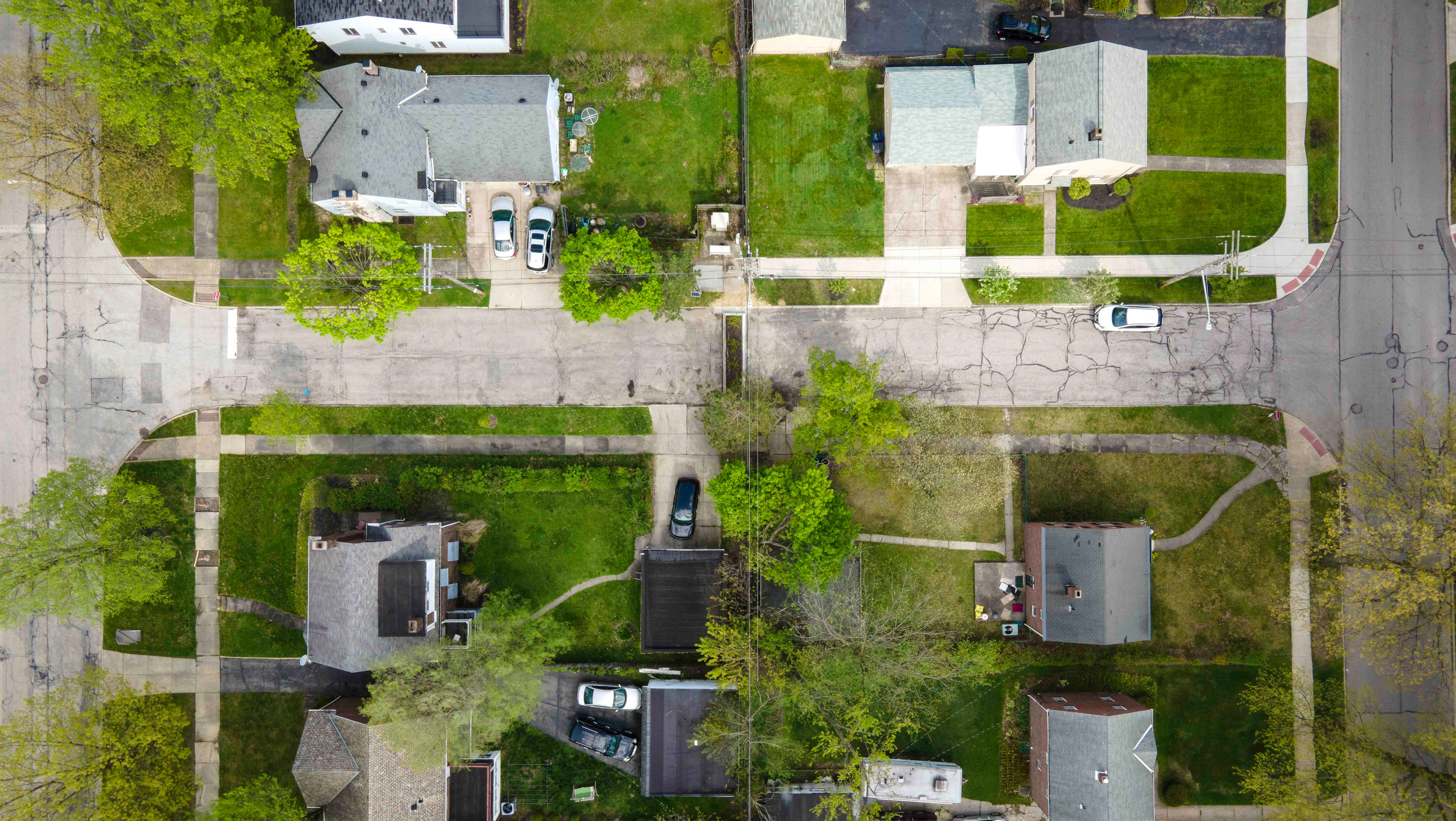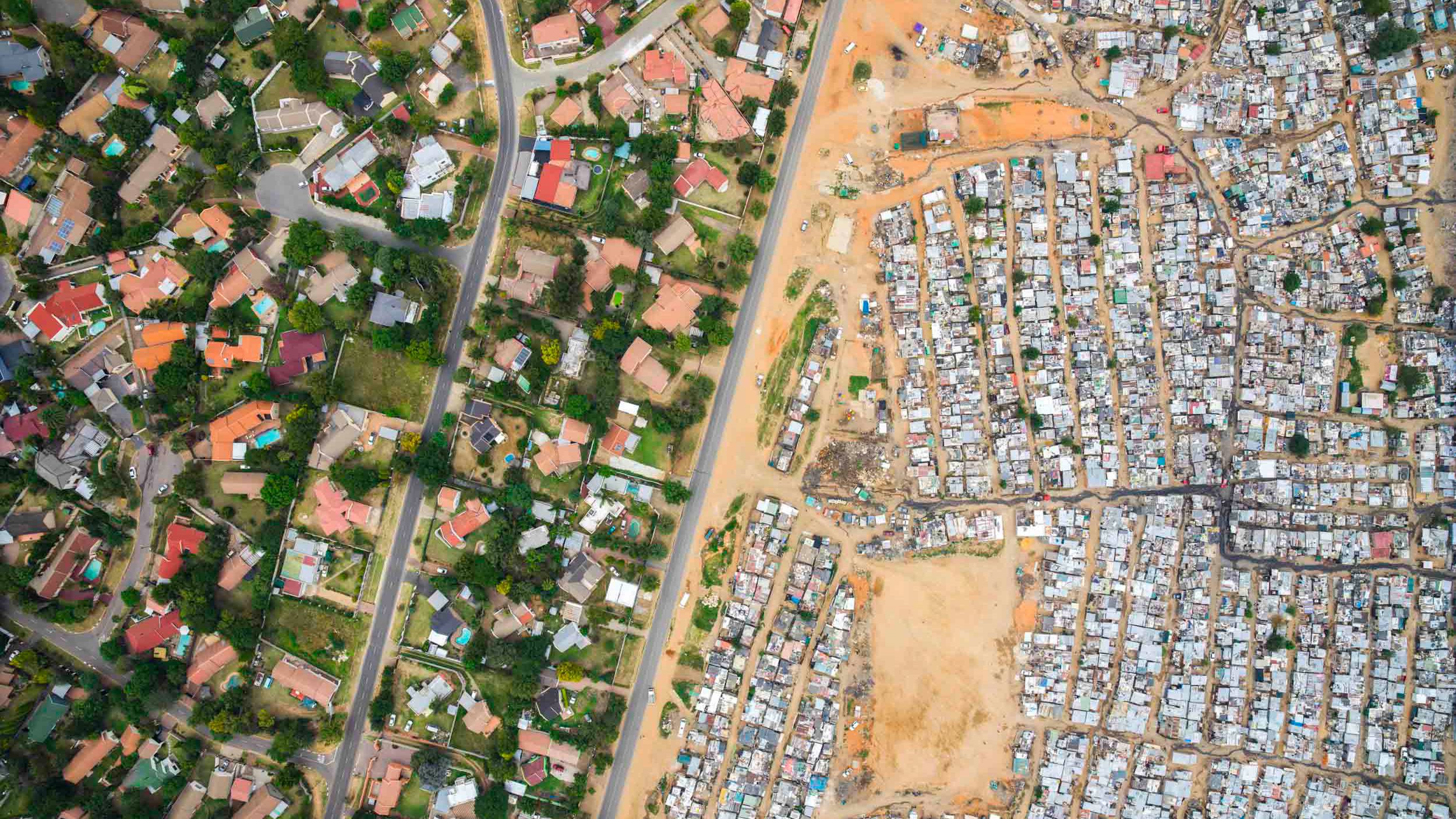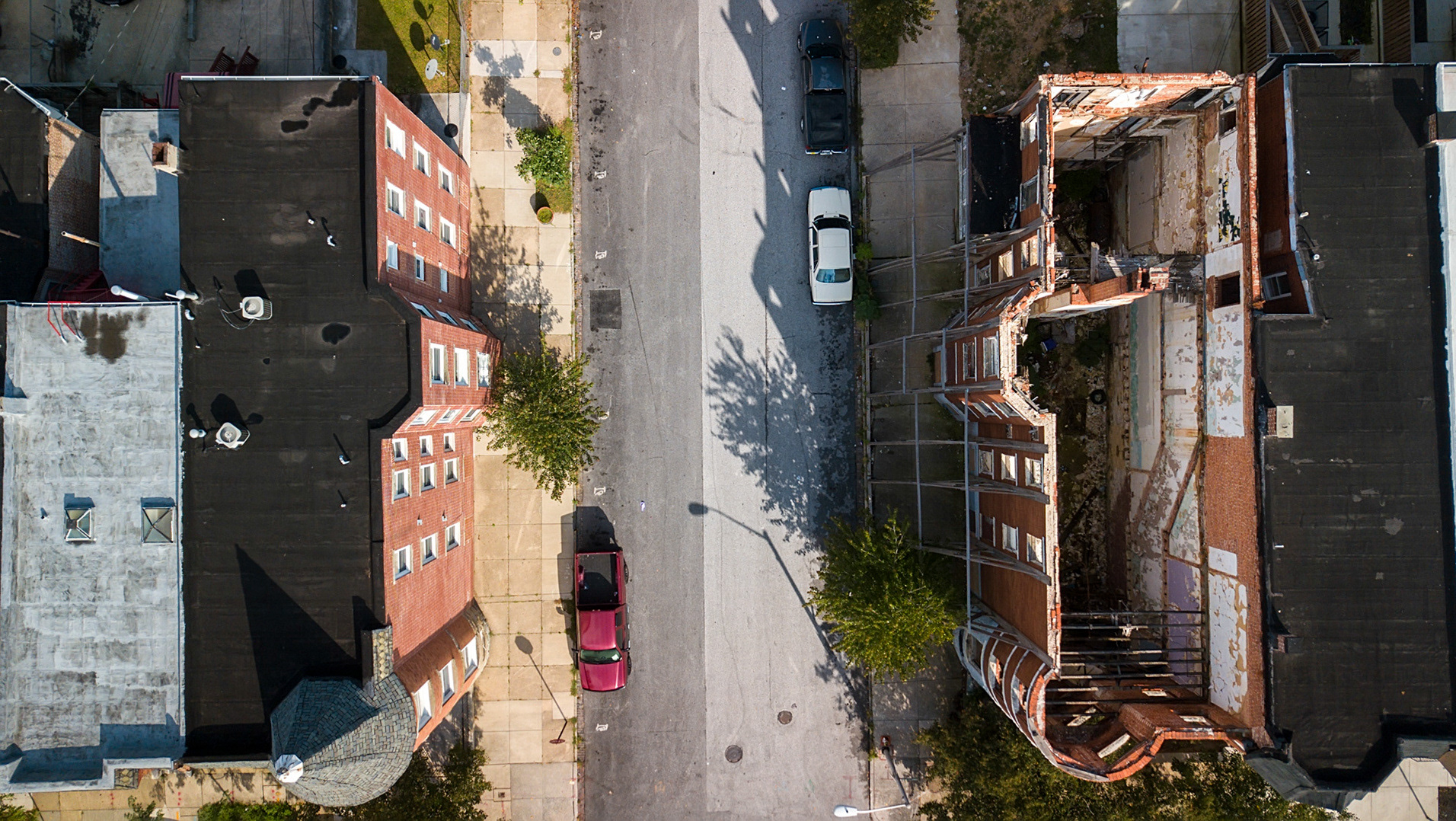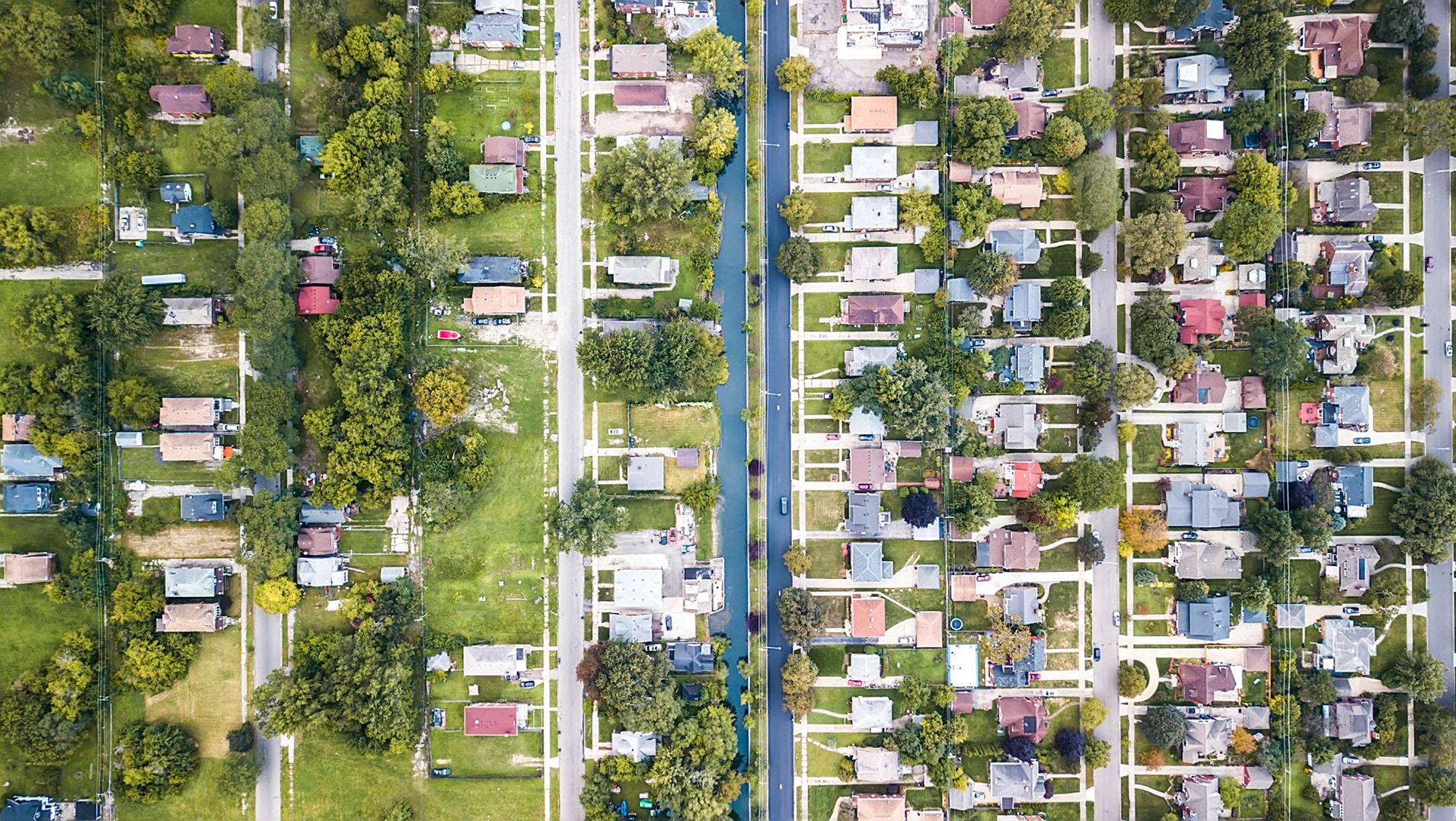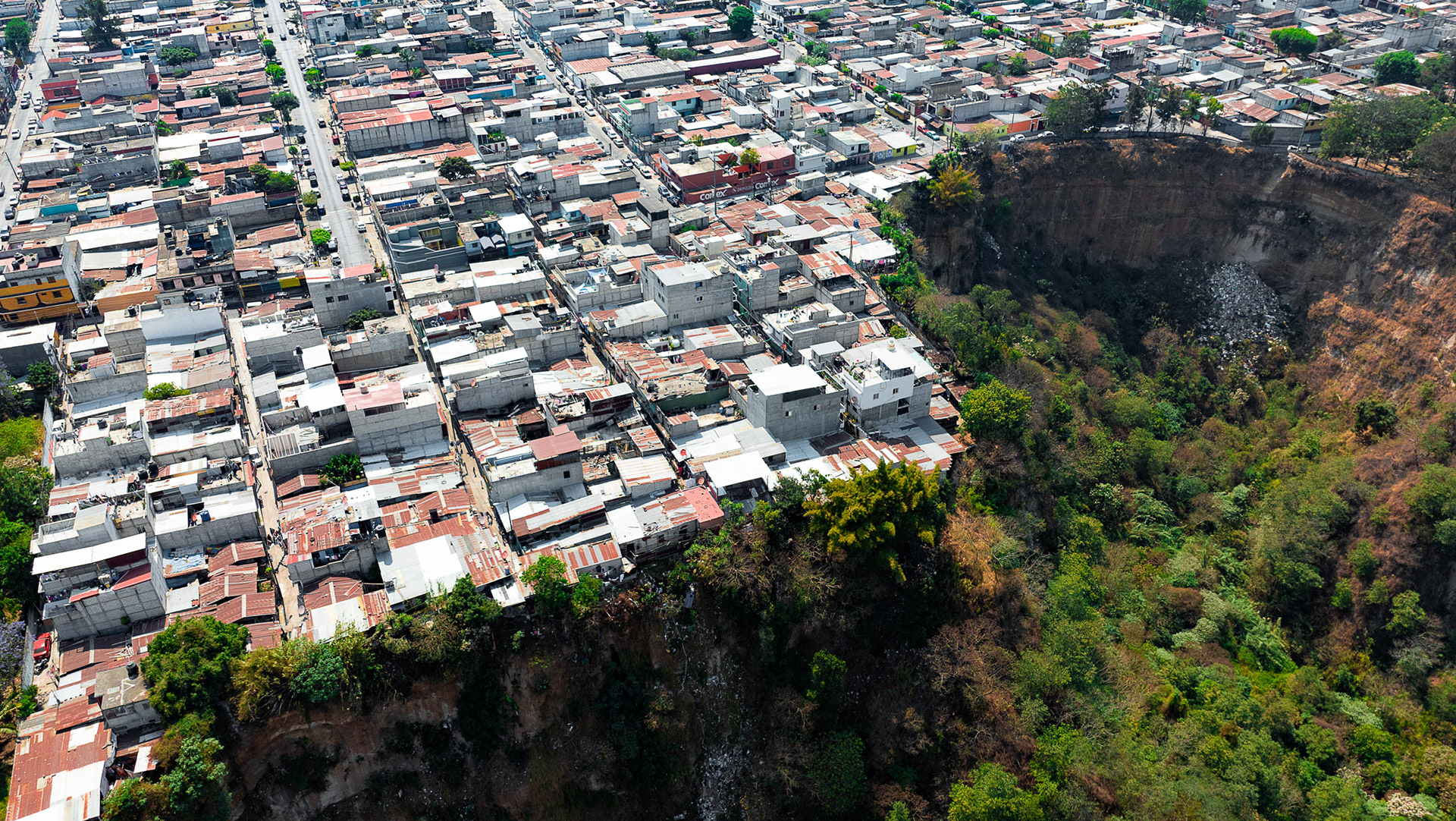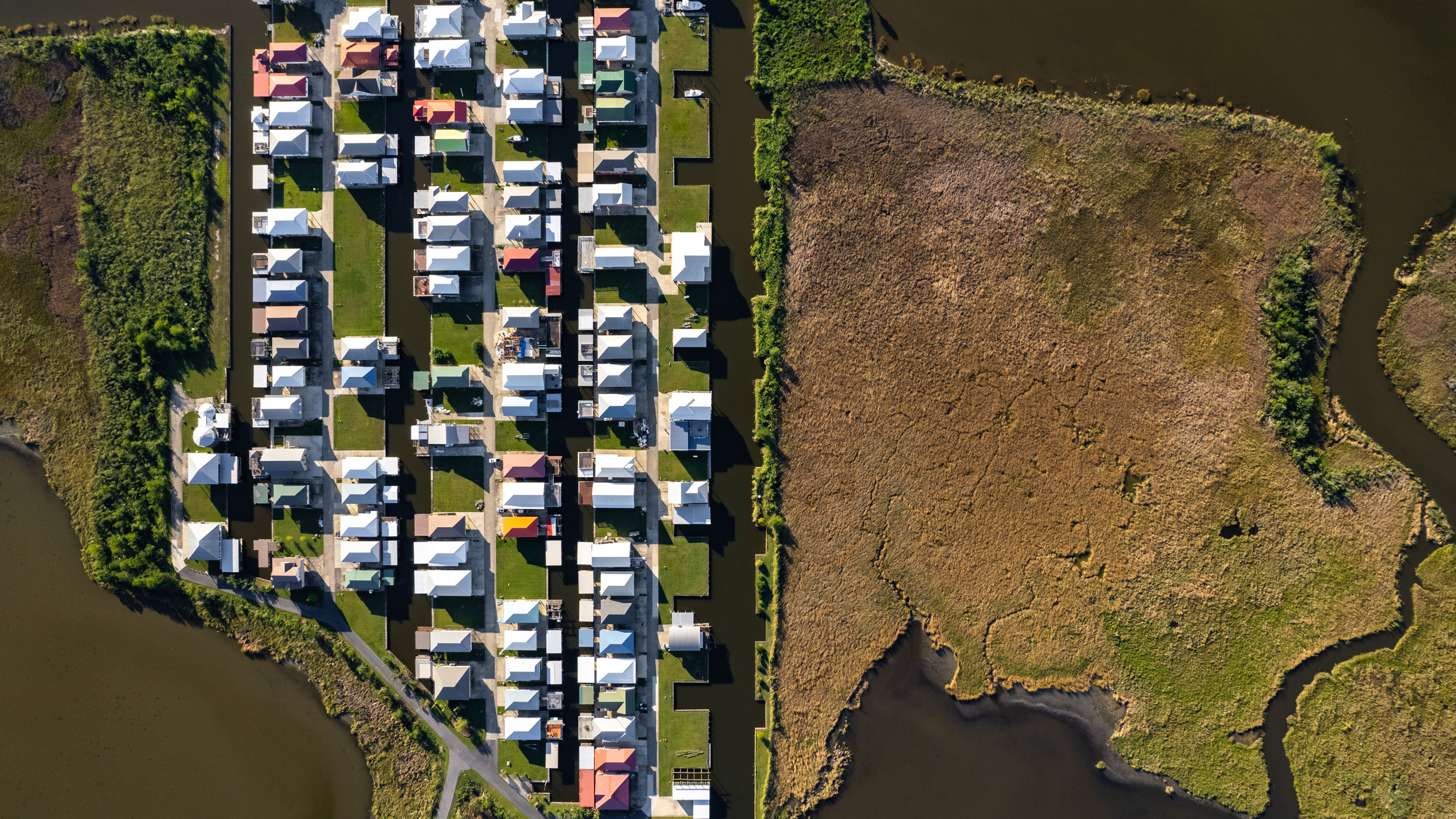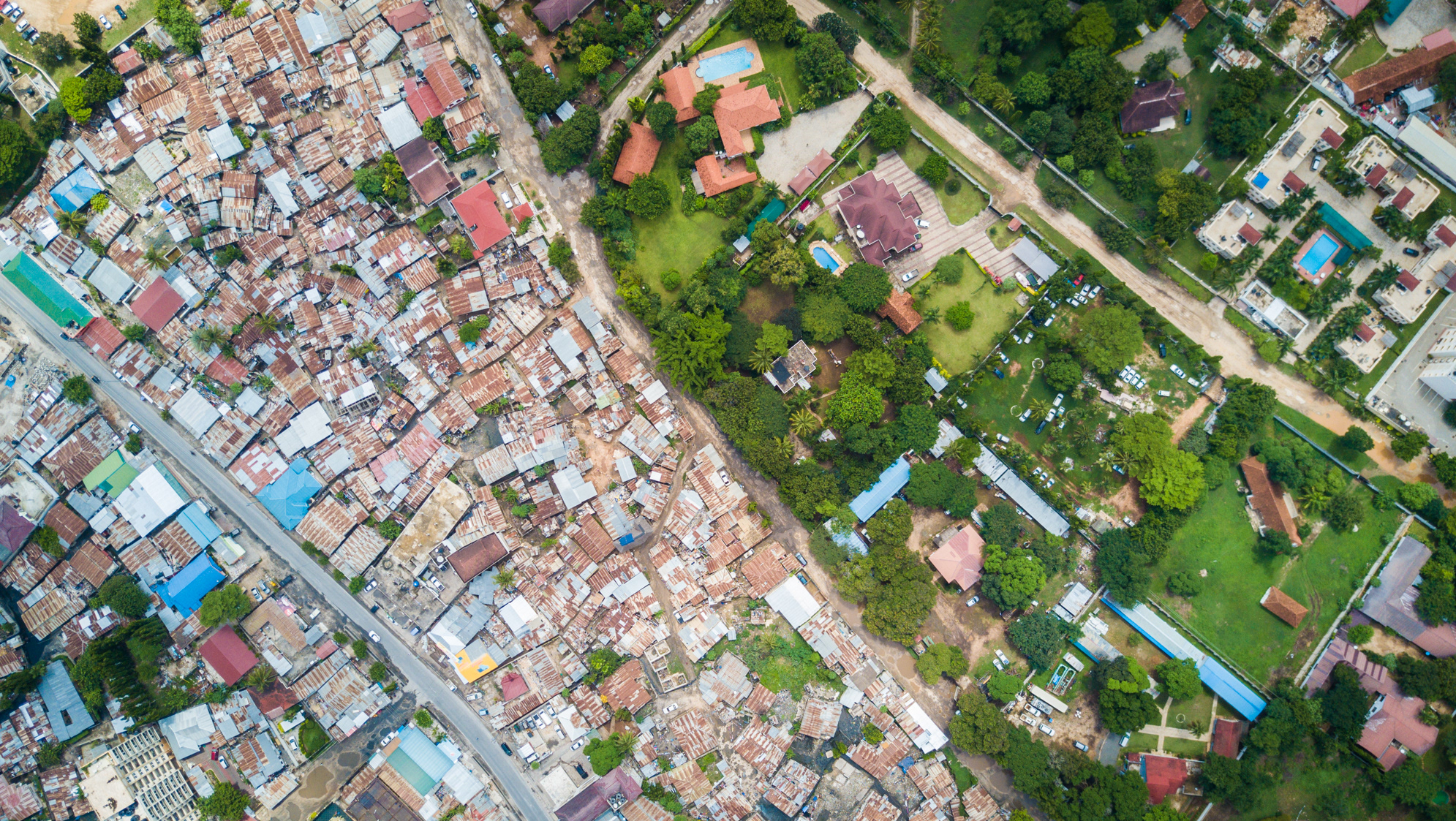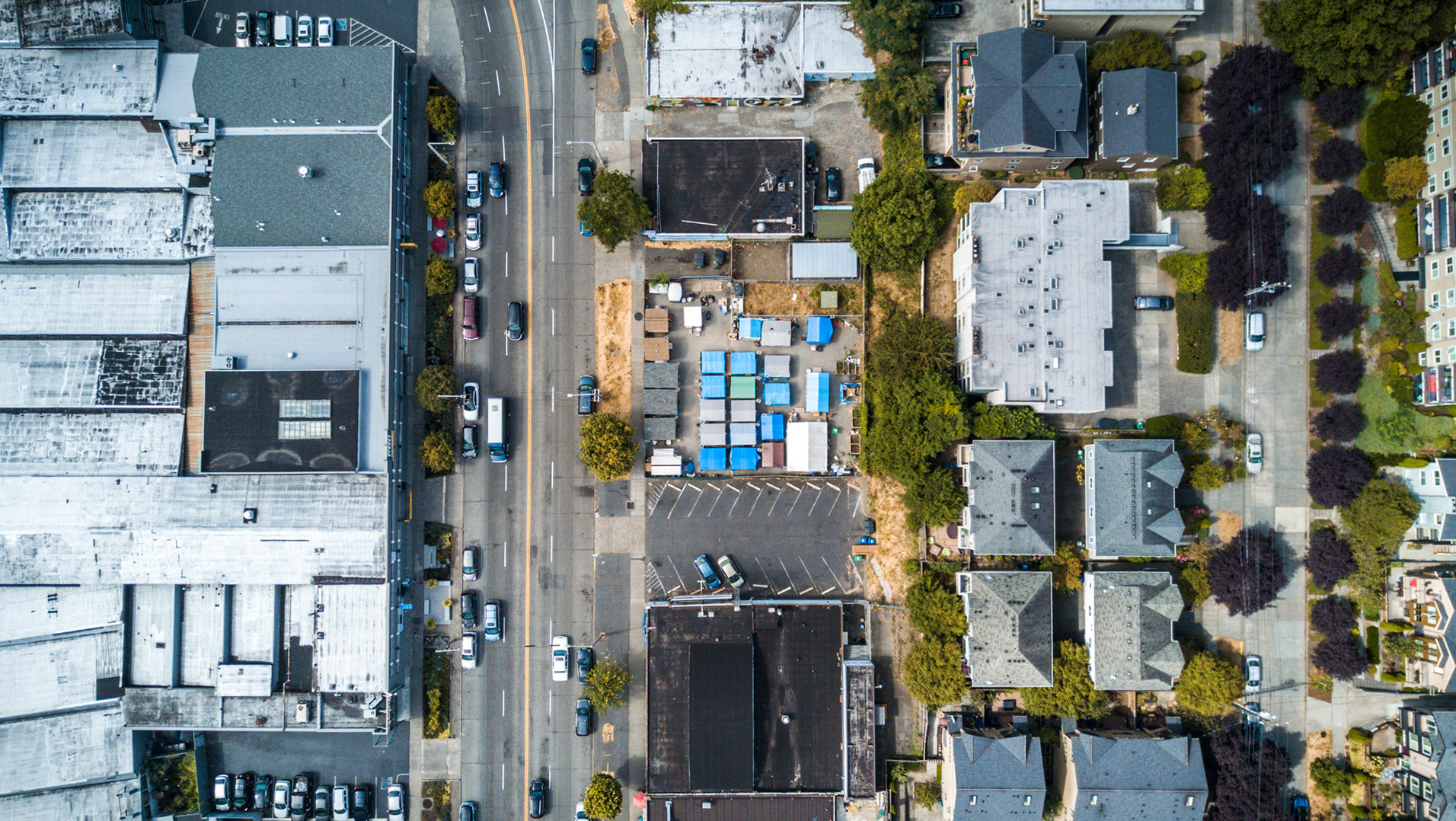Rich neighborhoods exist next to very poor areas called “villas miserias” in Buenos Aires. This one, near San Isidro in the wealthy northwestern surburbs of the city, is near the site of a wall that was built and quickly dismantled, making international news and called the "Wall of Discord" in Argentine media. Today there are still walls, barbed wire, and a yawning wealth gap between them.
Villa Rodrigo Bueno is located on some of the most expensive land in the city, on an ecological park in the shadow of the city's financial district. These informally built homes are currently being upgraded by the city to modern and regularized apartments.
The densely packed Villa 20, currently undergoing an upgrade.
Villa 31 and downtown Buenos Aires. Villa 31 (now known as Barrio Padre Mugica) is a dense mix of informal and formal buildings, with a mix of residents from Argentina and other South American countries.
Haphazard and unchecked development in Buenos Aires' sprawling villa miserias is the only affordable option for many families who want to live close to the city center.
Inequality in Buenos Aires Province, to the northeast of the city. Developments in the Paraná river delta are changing the face of the province closest to the river's edge.
The Alvear Tower, the tallest building in Buenos Aires, and a home for wealthy Porteños.
Villa Rodrigo Bueno, opposite a dilapidated amusement park on the river's edge in the affluent eastern section of BA.
A highway crossing Villa 31 with the skeleton of an unfinished ramp looming above.
Homes have been built in every conceivable place, including between and under the highway.
The city is the undisputed political, cultural and economic powerhouse of the country. Fully 1/3 of Argentina's population (15 million people) lives here.
These developments on wetlands north of the city are called "Nordelta". Reclaiming land from the soggy delta has become a gold mine for wealthy "Porteños".
New "regularized" housing in Barrio Padre Mugica.
The towns of Quilmes (left) and Avellaneda (right) are split by Calle Caviglia. The informal section in Quilmes, called Villa Azul, was the site of the country's first total quarantine, enforced by the military to mitigate a fast-spreading outbreak in May 2020. No such quarantine existed on the other side. Hailed as a success by the Argentine media, the spread of the virus and the response point to the tale of two worlds that came into sharp focus around the world during 2020.
In a June 2020 interview Health Minister Jonathan Konfino said, "...this has confirmed that for the occurrence of diseases, the determining factor is much more the postal code, rather than the genetic code. Today that street has become a symbol of injustice, which shows the inequality we live in and the need to advance the political decision to urbanize the neighborhood."
Villa 31 is separated from the downtown core of Buenos Aires by a busy rail yard.
Most of Buenos Aires’ “misery villages” are located in the south of the city. Villa 20 is built directly opposite a shopping center, the Olympic Village (from the 2018 Youth Olympic Games), and a defunct amusement park known as Parque de la Ciudad. Much like other informal neighborhoods in the city, it is undergoing an upgrading process, with new apartment blocks being built in an ever-expanding bid to formalize the city and guarantee basic services.
Villa 21-24.
Barrio Fatima, Villa 3.
Villa 20.
Villa 20.
Swimming pools and fences delineate the suburbs into rich and poor in BA province, north of the city.
Barrio Piedrabuena.
A fruit seller in Villa 31.
Twilight at the recycling spot.
Copper recyclers burn the rubber sheaths off of scrap cables creating toxic smoke in Villa 31.
Buenos Aires at night.

